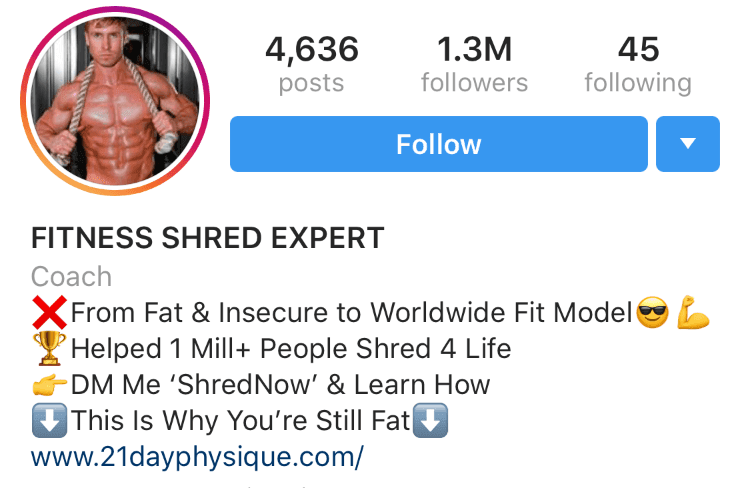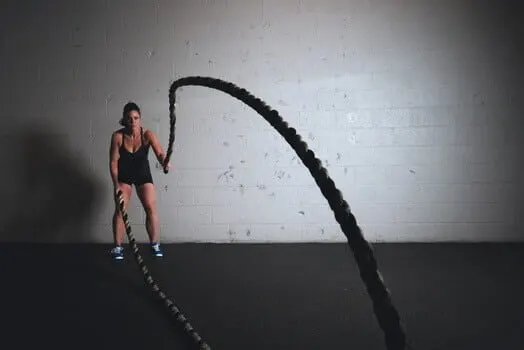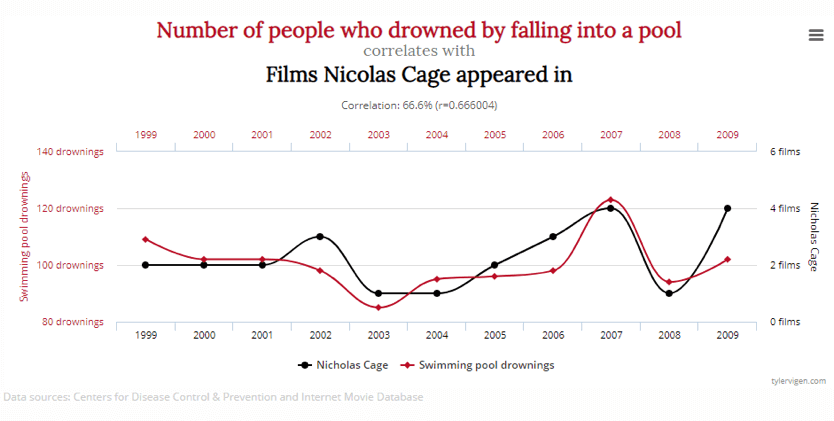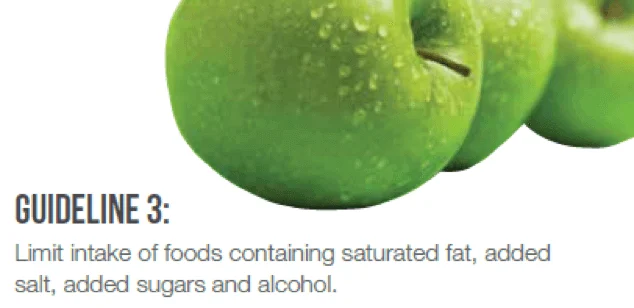Editor’s note: Everyone’s a fitness expert these days…or so it might seem when scrolling through your social feeds loaded with “detoxes” and “cleanses.”
But beyond the fake fitness news, alternative nutrition facts, and stage-managed social image crafting, what IS an expert anyway?
A real expert who actually knows what they’re talking about. Who CAN you trust? Who SHOULD you trust?
In this guest post by Dr Dan Jolley, PhD, professional strength and conditioning coach and doctoral researcher studying the fitness industry, he discusses personal training qualifications, knowledge, and what it truly means to be an expert.
Will the real fitness experts please stand up!
Over to you Dr Dan!
Bill
Before I start, I’ll preface my comments by saying that I come from a personal training background and by no means is this article a “hit job” on the entire industry or all personal trainers.
It is, however, a warning shot across the bow of those who, with a little knowledge, think they’re experts on everything.
Bad information promoted by the “experts” serves to undermine responsible public health messages, makes a joke of personal trainers, and further erodes the reputation of the fitness industry.
So the purpose of this article is to call bullsh*t on the “experts” and encourage you to use critical thinking when seeking out reliable health and fitness information.
—
The fitness industry in recent years has been changing at a breakneck pace.
Some of this change has been for the better – public parks have outdoor exercise equipment, group exercise options have increased, some gyms are now paying attention to the benefit of social support for exercise adherence, and the recent proliferation of barbells, lifting platforms, and free weights warms the heart of a grizzled old athlete and coach like myself.
But there have also been changes which have made things downright confusing for people looking for good quality information.
How Do We Find Reliable Information?
The internet opened the flood gates and democratised the flow of information and, though information is far more accessible now than it was only a decade ago, the quality of this information varies greatly.
In fact, much of the health, fitness, and nutrition information found online is simply not trustworthy.
Most people tend to assess the quality of online information based on cognitive shortcuts known as “heuristics” (i.e., “hmm, this sounds intuitively logical to me, so therefore it must be true”), rather than a detailed examination of the quality of the information.
And fair enough, it’s hard to know better if you don’t have a relevant science qualification! So how can you know what to trust?
Many people will look for someone who can interpret this information for them (and if you’re reading this article then, congratulations, you’ve already found an excellent resource in this site!)

But for many truth seekers, a highly accessible source of information is their personal trainer, the big guy who’s always at the gym, or the attractive girl that posts about nutrition on Instagram.
Some of these people will even call themselves (or brand themselves) as “experts” or “gurus.”
We’ve Seen How This Goes Wrong!
So just how trustworthy ARE these self-proclaimed health “experts”? Some recent controversies offer some clues.
Famously, there was Belle Gibson, the health blogger with no science qualifications who made false claims about having multiple cancers and “treating” them through nutrition.
Her lies netted her a large amount of money which she has yet to repay despite a court order.
For a fascinating read on this case, I can recommend the book The Woman Who Fooled The World by Nick Toscano.
More recently, blogger Olivia Budgen made the news for insensitive claims about cancer, then was rightly criticised on this very site for her attempted apology (i.e., “sorry, not sorry”).
Olivia provides a great resource when she just sticks to posting recipe ideas. She has made an effort to improve the quality of her advice in recent times, providing references for her claims, and clear disclaimers in response to criticism from myself and others.
But Olivia does not appear to have any relevant health qualification (I’ve asked her about this in previous communication).
She cherry picks evidence to support her opinions about the proposed health benefits of certain foods then extrapolates these findings too far.
Sometimes bad “expert” advice has potential to cause harm or even death.
In 2015, Chef Pete Evans, despite having no tertiary health qualifications, drew widespread condemnation from public health professionals after releasing a cookbook for mums and babies with a DIY baby formula which contained 4.5 times the maximum vitamin A dose for a baby.
Be sure to check out Dr Tim Crowe’s excellent parody of dubious online health claims.
Fitness Gets It Wrong Too!
In the personal training world in the last 5 to 10 years, I’ve observed a trend of trainers programming and encouraging higher training intensities.
This may take the form of hard intervals with heavily loaded sleds, battle ropes, or high volumes of plyometric exercise (bounding, jumping, etc.).
And the assumption seems to be that everyone can benefit from this intensity regardless of whether they have a weight loss goal, a general fitness goal, or a more specific performance goal.
In fact, I’ve met trainers who are dismissive of steady state running (i.e. jogging) to assist in weight loss (or develop general fitness) despite the fact that the type of adaptation you receive from both resistance training and cardio training depends heavily on variables such as intensity and volume.
Research shows that short, very high intensity sessions may not achieve the best results for your needs, and tend to result in poorer exercise adherence.
These “experts” also seem to be unaware that a well-developed aerobic fitness base (yes, even with low intensity running) can in fact improve your ability to recover between high intensity efforts.
As I mentioned in my CrossFit review on this site, as a coach, I program very different training to achieve different adaptations for different people.
Furthermore, high intensity sessions may be contraindicated in those with multiple cardiac risk factors (which opens up a completely different discussion on the importance of pre-exercise risk stratification).

But My Trainer Seems To Know…
So there’s a lot of questionable, if not bad, information out there, especially online, but aren’t fitness professionals trustworthy sources of information?
Shouldn’t we be able to assume the personal trainer at your local gym is a helpful source of safe, effective advice?
Sometimes yes, but not always.
Over the last 15 years, a growing body of research has consistently demonstrated that personal trainers possess errors in their factual knowledge base (and sometimes serious errors in knowledge which I have discussed in a previous article).
But even more concerning is the fact that, despite knowledge gaps, personal trainers tends to possess high levels of confidence in their knowledge.
Thorough interviews with personal trainers have shown that trainers tend to value on-the-job experience and mentoring from other professionals more than formal qualifications.
While these can certainly be valuable tools for professional development, recent Australian research showed that only about half of personal trainers used reliable sources of information (i.e., science journals, science text books).
So to summarise the research, we have a large proportion of personal trainers with:
- potentially poor knowledge;
- high levels of confidence;
- little appreciation for qualifications; and
- who rely on unreliable sources
What Qualifications Do Experts Have?
What qualifications do these “fitness experts” possess?
Some of the better ones may have a relevant health science university degree.
Many others will possess a personal training qualification (a Certificate IV in Fitness), which is the minimum entry level qualification required to gain accreditation with Fitness Australia.
And some will possess nothing more than a blindingly white smile and a few years banging weights around the gym.
I’m in my 22nd year of study and/or work in the fitness industry and recently finished my third (and hopefully last) degree.
But if I relied on this experience as an argument for why my opinion should be accepted without question, I would be committing an appeal to authority fallacy. (i.e., “take my word for it because I have degrees”).
In fact, it is all my years of work experience and university study that have given me an immense respect and humble appreciation for established evidence (as opposed to “bro science”).
My education has taught me that, whilst I’ve learnt a lot along the way, there’s still so much MORE that I have yet to learn!
You will rarely see any of the advice I give to clients, students, or colleagues directly contradict the established science on a topic, and certainly not without copious amounts of high quality evidence to support my alternative claims.
Yes, science is always evolving and we must keep an open mind about new exercise and nutrition research, but not so open that our brains fall out and we become mouth pieces for pseudoscience and quackery.
We must demand evidence over opinions no matter who is spouting off the latest greatest exercise or nutrition “breakthrough.”
A Common Example
Many self-styled “experts” are quick to dismiss heavily researched exercise and nutrition guidelines, which may not be consistent with popular fitness and nutrition trends (i.e., “detoxes” and “superfoods”).
The argument is often this: “These nutrition guidelines have been around for a long time and yet people are getting fatter and fatter…therefore the guidelines are wrong.”
And they are partially correct, according to government statistics, obesity rates ARE on the rise.
But the assumption that obesity rates continue to increase because of these guidelines is flawed.
Assuming a cause and effect relationship from a mere association is a rookie mistake for any aspiring critical thinker.

In fact, the rising obesity rates are not because people are following these guidelines, but because they’re NOT following them.
National Health Survey data shows us that very few people actually achieve the recommended amounts of fruits and vegetables in their diet, instead choosing more energy dense options (i.e., burgers, chips, and fizzy drinks).
On top of that, people are not meeting the physical activity recommendations, with just over 50% self-reporting sufficient exercise.
Some of these “experts” also attack these guidelines for encouraging diets high in refined sugars but, in fact, guideline #3 specifically mentions limiting added sugars in the diet.

But Criticism Is Welcome
I need to state this clearly here: NO ideas are beyond criticism.
We rightly SHOULD question exercise prescription and healthy eating guidelines. And we do, regularly.
In fact, in 2012 the physical activity recommendations in Australia were changed to increase the volume of recommended exercise, with specific mention of limiting screen time.
The Australian Dietary Guidelines were updated in 2013 to:
- increase their focus on maintaining an appropriate energy balance; and
- reflect changing evidence about risks, and benefits, associated with consumption certain foods.
These changes are informed by mountains of evidence.
Hundreds of scientific journal articles, each representing months or years of work by multiple scientists, are considered when these changes are made.
And each article is carefully read and criticised by other scientists, multiple times, until they are considered worthy of publication.
They are, in short, extraordinarily well-informed documents, designed to provide safe, effective advice to the majority of the population.
What Does Your “Expert” Think?
Now we get to the crux of the issue.
What does your exercise or nutrition “expert” think of something as fundamental as healthy eating or physical activity advice?
Do they dismiss these guidelines as irrelevant, out of date, or paid off by industry groups or “big pharma?”
There’s no doubt that we could find issues with individual pieces of evidence that inform these guidelines or even the motives of lobbyist groups, but to dismiss the whole body of research because of some cherry-picked examples that suit an argument is not rational.
That would be like throwing out everything we know about the effectiveness of vaccination because one piece of research by a now disgraced researcher with undisclosed conflicts of interest suggested vaccines were linked with autism… and as we know, that would never happen. Wait. Never mind.
There’s also no doubt that these recommendations do not apply to everyone.
They are designed to be general, and simple enough, to apply to the vast majority of the population.
Certainly if you have medical issues, cultural preferences, or performance requirements, your needs may differ, and you should seek more specific advice.
Is Your “Expert” An Actual Expert?
Does your “expert”:
- Dismiss high quality research evidence, preferring their personal anecdotes, case studies, or one or two selected pieces of evidence? They are not an expert.
- Make alternative claims and/or promote questionable products and services (i.e., detoxes, cleanses, fat burning supplements) without providing any compelling body of supporting evidence? They are not an expert.
- Make judgements about the quality of scientific research, without holding a research qualification in a relevant field to be able to even read and understand the said research? They are not an expert.
- Use unreliable sources of information such as blogs, social media sites/apps, and websites that do not have clear author and reference information? They are not an expert.
Christopher Hitchens once said “what can be asserted without evidence can be dismissed without evidence.”
So your fitness or nutrition “expert” making an extravagant or controversial claim is no more deserving to be taken seriously than a flat earth proponent, anti-vaccination campaigner, or notorious Hollywood woo peddler Gwyneth Paltrow.
Show this article to your trainer and pay attention to their response.
Are they dismissive of my support for established evidence?
Ask why and, specifically, which evidence informs their opinions.
Making a claim that contradicts established evidence carries quite a burden of proof!
Or do they claim that they are different because their years of experience mean they know more than younger trainers?
This is not a strong claim. In fact, it is the same appeal to authority I was careful to avoid earlier.
Early results from my doctoral research show that years of experience as a personal trainer have no impact on the knowledge personal trainers possess, but their level of education does.
To Sum It All Up
There is a growing body of evidence that many personal trainers use highly variable sources of information, and many also have inadequate knowledge about fundamental nutrition and exercise concepts.
So choose your trainer wisely.
Pick someone who operates within their scope of practice, is humble about their knowledge, is prepared to adjust their opinion in the face of changing evidence, and who recognises that a Certificate IV in Fitness alone does not make them a “guru” or “expert” in any field of knowledge.
Yes, a trainer can be a great person and an excellent, highly skilled practitioner, but that does not make him/her an “expert.”
And neither, for that matter, does a million Instagram followers.


Charlie vanriper
Tuesday 28th of May 2019
OUTSTANDING
Dan
Tuesday 2nd of July 2019
Thanks Charlie! Bill & I get fired up about this!
Dwayne Wimmer
Tuesday 21st of May 2019
Another great post my friend! I will be passing this on.
Keep up the good work!!
Dwayne Wimmer Owner Vertex Fitness Personal Training Studio
Dan
Tuesday 2nd of July 2019
Glad you enjoyed it Dwayne, we had fun with this one!